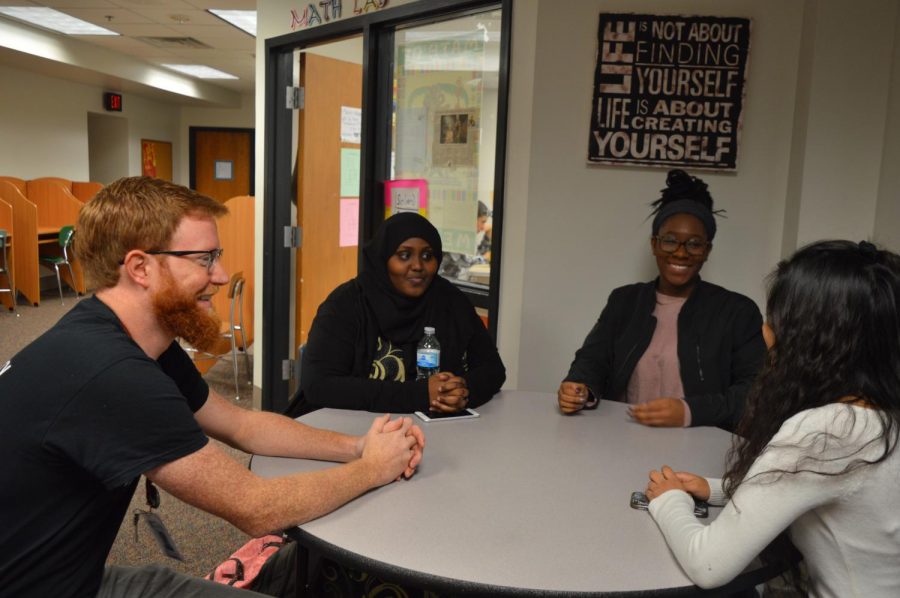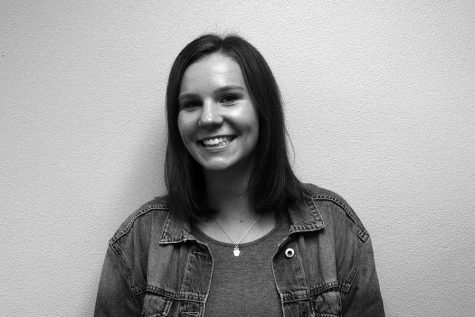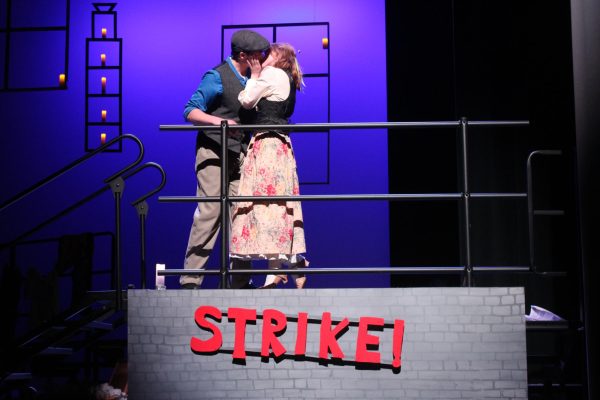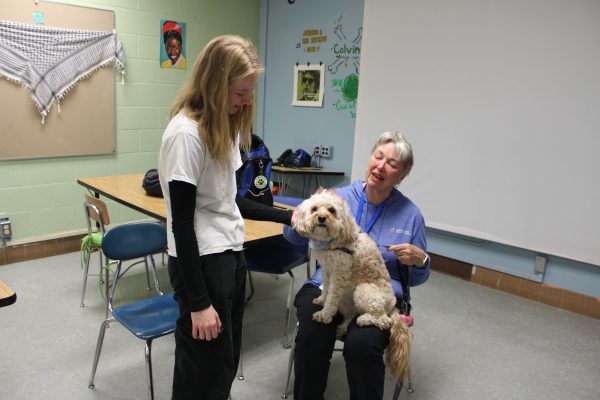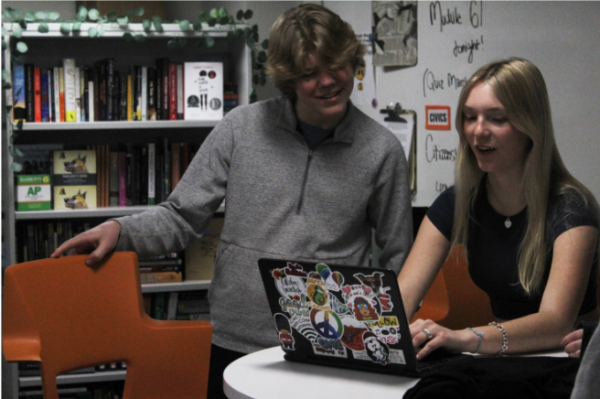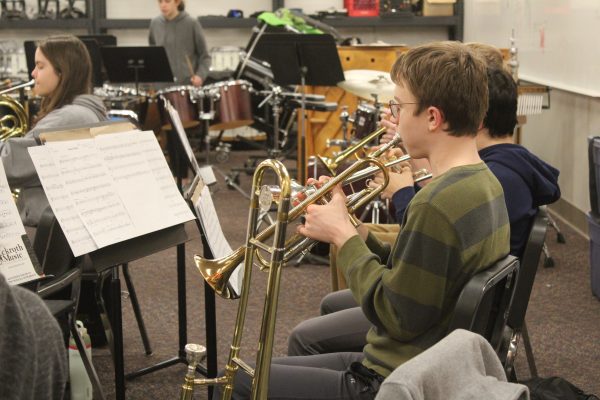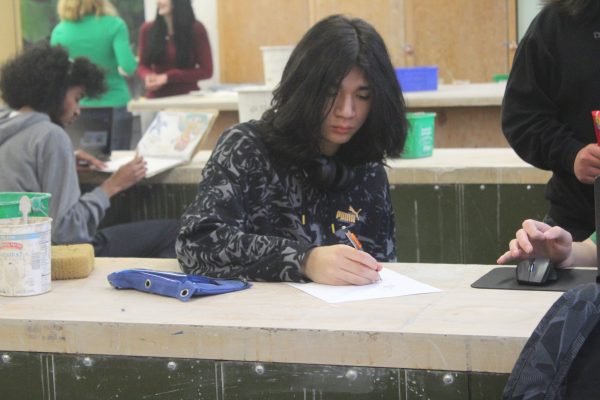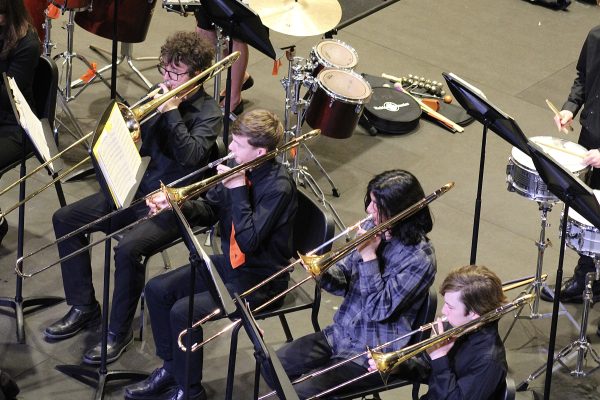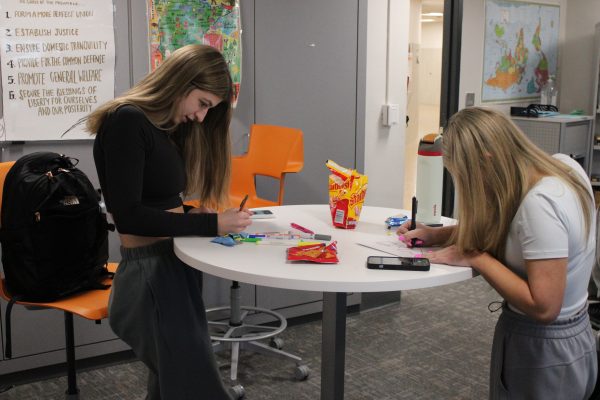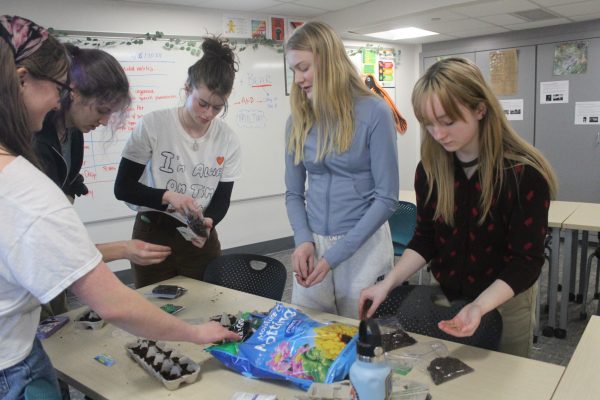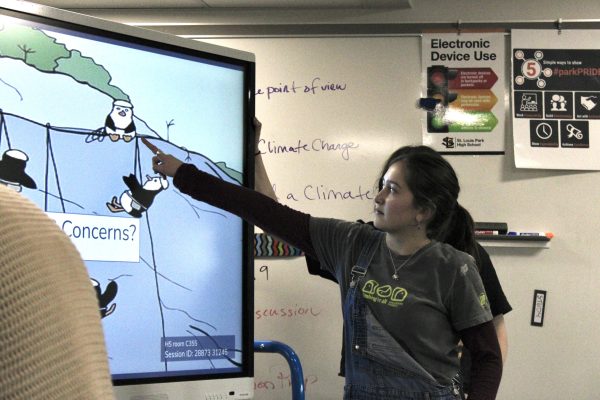Students Organizing Against Racism begins year
Club focuses on discussing racism, history
Equity coach and SOAR adviser Matthew Horel talks to seniors Rahma Farah and Ambriya Reese about the complexities of race. SOAR meets every Thursday at 8 AM.
October 11, 2017
In preparation for the first Students Organizing Against Racism meeting of the year, club adviser Matthew Horel anticipates the club’s new goals.
“(Students Organizing Against Racism is) going to be different from the past, and it’s really going to be student driven (with) kids who really feel passionate about finding those solutions and engaging that conversation (about racism),” Horel said.
According to Horel, Students Organizing Against Racism (SOAR) teaches members the Courageous Conversations Around Race technique, a tool that uses specific language when talking about race.
“This year what we’re doing though is we’re teaching (Courageous Conversations Around Race to) the students who are involved,” Horel said. “(Courageous Conversations Around Race) utilizes a framework of just setting ground rules (and) how you engage in a conversation around race.”
Senior SOAR member Ayatt Salad said she appreciates SOAR’s discussions surrounding race.
“This is my first time being in (SOAR),” Salad said. “I think (SOAR is) a way to make kids aware of what’s going on around them (regarding racism).”
Horel said implementing ideas from Courageous Conversations Around Race allows members of SOAR to apply those skills outside of the club.
“We want to make sure SOAR has (the Courageous Conversations Around Race) language because it’s a powerful tool because when you’re talking about race, (Race is) a touchy subject, and it brings up a lot of emotions, and this is kind of that lense to guide the conversation,” Horel said.
According to senior SOAR member Rahma Sarh, SOAR brings attention to topics not typically discussed.
“I started (SOAR) this year. I like how it brings awareness to the injustice or how we talk about race,” Sarh said.
Horel said SOAR aims to clarify the complicated aspects of race.
“Goals for (SOAR are) really to expose SOAR students to the complexity of racism, to start to see how complex it is because we believe firmly as educators, (students) are the future who’s really going to fix this (racism) problem,” Horel said.
Salad said it is important for people to have an open mind about controversial topics.
“If you don’t agree with (an opinion), that’s okay, that’s fine,” Salad said. “Many people have many different opinions, and it’s good to make (people) aware (of) how some people feel and there’s different ways to go about things.”
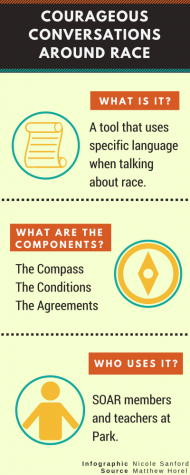
Sarh said SOAR presents new perspectives about race that can change member’s way of thinking.
“(SOAR) teaches you a lot of things you don’t really know about (race),” Sarh said. “It wakes you up in a way if you weren’t awake before.”
Horel said the club hopes to expand and welcomes anybody interested in learning more about the history of racism.
“Right now we had eight (members) at the first meeting, and we’re looking for a core group of people who really drive the group who are there consistently, but we’re welcoming to all students who want to learn a bit deeper sense of their history, of their community, of themselves,” Horel said. “We’re an open group for anyone who wants to come and learn something new and really be a part of this solution to solving racism in the 21st century.”
According to Horel, SOAR meets every Thursday before school in Dr. Lee-Ann Stephen’s office in the Learning Lab (A202B).



